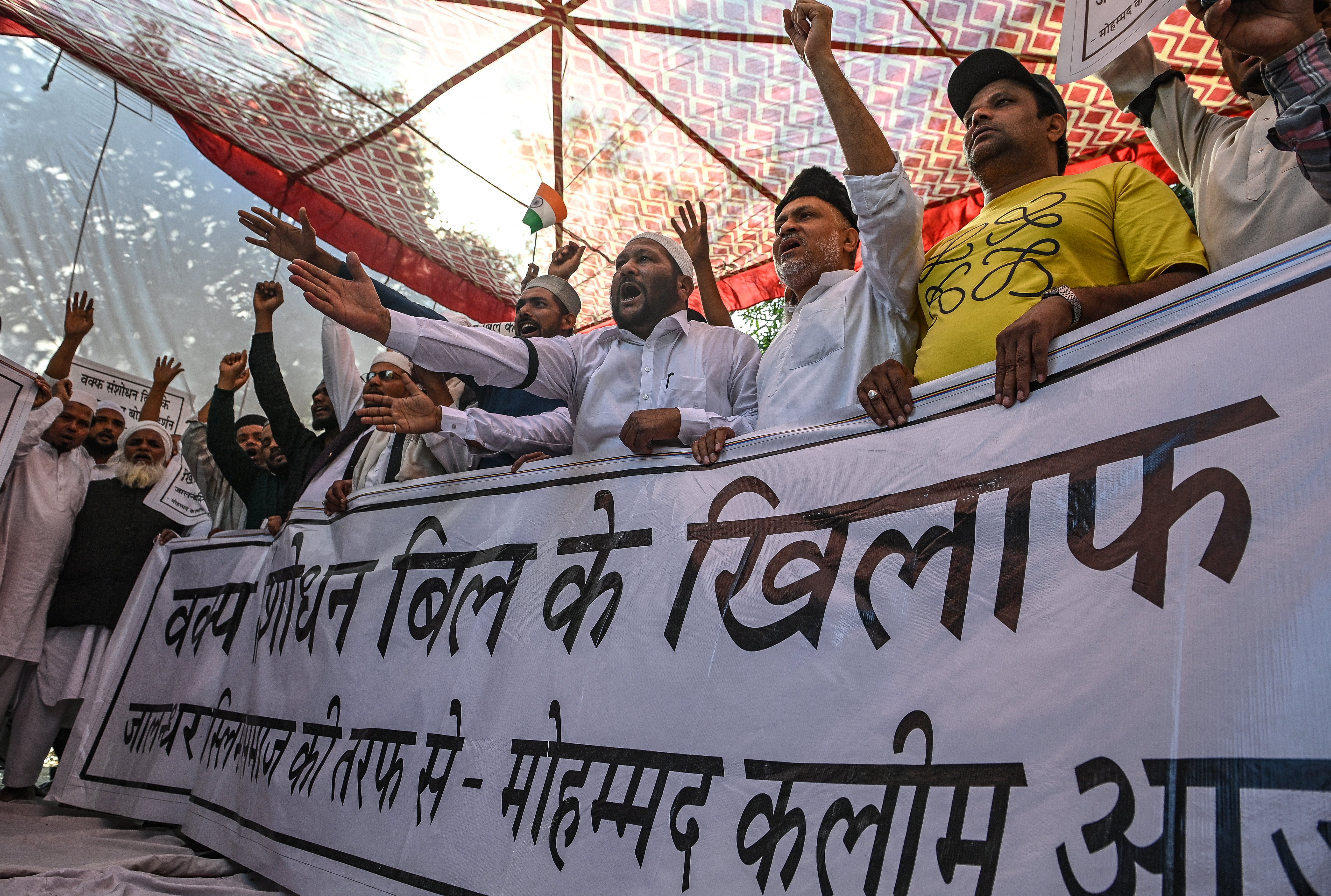India’s political opposition on Saturday protested a controversial bill moved by prime minister Narendra Modi’s Hindu nationalist government to amend laws governing Muslim land endowments.
The Waqf (Amendment) Bill 2024 was passed on Thursday after a 12-hour debate in parliament’s lower house with 288 votes in favour and 232 against. The contentious bill later sailed through the Rajya Sabha, the upper house of Indian parliament.
Under the bill, the government is seeking to add non-Muslims to boards that manage Waqf land endowments and allow the Hindu-led government a larger role in validating their land holdings.
Muslim groups and opposition parties protested the move, with India’s three opposition parties – Indian National Congress (INC), Aam Aadmi Party (AAP) and All India Majlis-e-Ittehadul Muslimeen (AIMIM), challenging the bill in the country’s Supreme Court.
The groups have called it an overreach by Mr Modi and pointed out that the move will further undermine the rights of the minority Muslims. They said it will be weaponised to confiscate historic mosques and other property from India’s past Islamic rule.
Waqf refers to property donated for religious or charitable purposes under Islamic law. Once declared Waqf, ownership is transferred from an individual to Allah, and the asset becomes inalienable, managed by a trustee for the benefit of the community.
Amanatullah Khan, the AAP lawmaker who moved the top court on Saturday, said the amendment will reduce the religious and cultural autonomy of Muslims in India, reported NDTV. The government intervention will also undermine the rights of Muslim minorities to manage their religious and charitable institutions, he said, challenging the constitutional validity of the Waqf amendment bill.
Mr Khan said the legislation violates multiple fundamental rights of citizens, including freedom of equality, managing religious affairs, and the rights of minorities.
Mr Modi’s ruling Bharatiya Janata Party government argued that the changes moved by the amendment will help to fight corruption and mismanagement while promoting diversity. The top Indian leader cheered the clearance of the amendment and called its passage a “watershed moment in our collective quest for socio-economic justice, transparency and inclusive growth”.
Additionally, the bill will transfer ownership determination to a state-appointed collector if the land is disputed – removing this power from the Waqf Board itself.
At least 24 people were arrested in northern state of Uttar Pradesh for protesting the amendment by wearing a black band.

The Congress-led Indian opposition parties firmly opposed the proposal, calling it unconstitutional and discriminatory against Muslims.
“The Waqf (Amendment) Bill is a weapon aimed at marginalising Muslims and usurping their personal laws and property rights. This attack on the Constitution by the RSS, BJP and their allies is aimed at Muslims today but sets a precedent to target other communities in the future,” said Rahul Gandhi, the leader of opposition in the Parliament.
He said the Congress party “strongly opposes this legislation as it attacks the very idea of India and violates Article 25, the Right to Freedom of Religion”.
“The government says disputed land will now be assumed to be government property, and it’ll be the collector’s decision. That’s against natural justice,” AIMIM chief Asaduddin Owaisi told The Independent. “How can you be a judge in your own case?” he asked.
YouTuber, 24, leaves can of Coke for world’s most isolated tribe and gets arrested
Indian parliament ratifies Modi’s control over strife-torn Manipur
India’s crackdown on Muslim charitable trusts sparks fears for religious freedom
Passengers on Virgin Atlantic flight stranded in Turkey for 40 hours reach India
New 3D-printed skin could end cosmetic testing on animals, scientists say







